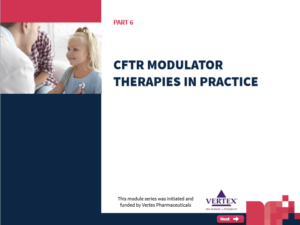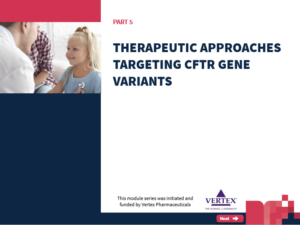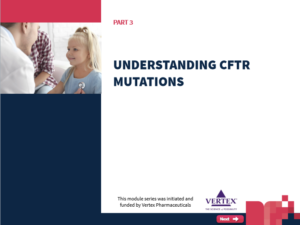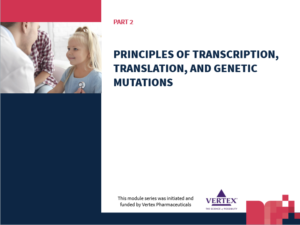Menu
You must be logged in to view this report.
The module you are trying to access does not exist.
PART 6: MODULE 2 ASSESSMENT
Assessment: 10 multiple-choice questions
Duration: 10 min (approx.)
PART 5: MODULE SUMMARY AND TAKEAWAYS
Summary – the OCP Summary – SLCNs
Duration: 5 min (approx.)
PART 4: DIAGNOSIS, STAGING AND TREATMENT PLANNING
First specialist medical appointment Clinical guidelines Diagnostic work up Biopsy procedures Liquid biopsies TNM staging in lung cancer Biomarkers in lung cancer Treatment planning Performance status considerations
Duration: 15-25 min (approx.)
PART 3: PRESENTATION, INITIAL INVESTIGATIONS AND REFERRAL
Presentation and investigations Urgency of investigation Initial referral Inbound referral processes at specialist services SLCN activity prior to the first specialist appointment
Duration: 10-15 min (approx.)
PART 2: PREVENTION AND EARLY DETECTION
Advocacy and policy direction Public health and health promotion campaigns Lung cancer risk factors Recommendations for preventing lung cancer Variations in lung cancer outcomes Screening for lung cancer
Duration: 5-15 min (approx.)
PART 1: AN OVERVIEW OF THE OPTIMAL LUNG CANCER PATIENT PATHWAY
The Optimal Care Pathway (OCP) Seven principles of care Steps of care in the OCP Optimal care timeframes Special population groups
Duration: 10-15 min (approx.)
MODULE 2 INTRODUCTION
Introduction Recap: Learning outcomes Recap: Module overview
Duration: 2 min (approx.)
INDUCTION EDUCATION SERIES OVERVIEW
Induction series introduction Module series overview Resources and assessment
Duration: 3 min (approx.)
PART 6: MODULE 1 ASSESSMENT
Assessment: 10 multiple-choice questions
Duration: 10 min (approx.)
PART 5: MODULE SUMMARY AND TAKEAWAYS
Duration: 5 min (approx.)
PART 4: THE ROLE OF THE SPECIALIST LUNG CANCER NURSE
High level expectations Five domains of advanced practice nursing Clinical care domain Optimising health systems Implementation of the SLCN role
Duration: 15-25 min (approx.)
PART 3: COMPLEXITIES OF LUNG CANCER
Equity of care Stigma Medical nihilism
Duration: 5-10 min (approx.)
PART 2: EPIDEMIOLOGY OF LUNG CANCER
Epidemiology Incidence Survival rates Mortality Burden of disease LFA lung cancer blueprint 2.0
Duration: 5-10 min (approx.)
PART 1: BACK TO BASICS – WHAT IS LUNG CANCER?
Anatomy of the respiratory system What is cancer? Types of lung cancer Small cell lung cancer Non-small cell lung cancer Gene mutations in lung cancer Signs and symptoms of lung cancer Mesothelioma
Duration: 15-25 min (approx.)
MODULE 1 INTRODUCTION
Introduction Recap: Learning outcomes Recap: Module overview
Duration: 2 min (approx.)
INDUCTION EDUCATION SERIES OVERVIEW
Induction series introduction Module series overview Resources and assessment
Duration: 3 min (approx.)
Post-learning survey and evaluation
After completing this module, we would like to understand your knowledge and understanding about the science behind CF and CFTR modulator therapy, as well as evaluate your experience and satisfaction with this module. The survey has a total of 9 mandatory questions and 2 optional questions. Please allow around 5 minutes to complete it.
Part 6: CFTR modulator therapies in practice
Clinical reflections - instructions
Who’s on your team?
Confirming CFTR gene variants and genetic test results
Interpreting genetic test results
Explaining CFTR mutations to patients
Module summary
Duration: 10-12 minutes (approx.)
Part 5: Therapeutic approaches targeting CFTR gene variants
Treatment evolution
Types of CFTR modulator therapies
F508del: a minimal function mutation that can be corrected
CFTR modulator discovery
Translational science in action: CFTR modulator development
Duration: 10-15 minutes (approx.)
Part 4: Impact of CFTR genotype on phenotype
Phenotype versus genotype
CFTR gene variants and CF disease phenotype
Relationship between CFTR function and phenotype
Duration: 5-10 minutes (approx.)
Part 3: Understanding CFTR variants – types of mutations and their impact
Variety of CFTR gene variants identified
CFTR quantity and function
Classes of CFTR gene variants
Classifying gene variants by function
Minimal function mutations
Impaired gating mutations
Residual function mutations
F508del characteristics
Useful resources
Duration: 10-15 minutes (approx.)
Part 2: Principles of transcription, translation, and genetic mutations
Central principle of molecular biology
Gene variants impact protein form and function
Ways genes can be altered
Gene variant naming formats
Duration: 10-15 minutes (approx.)
Part 1: Cystic fibrosis – an overview
CFTR gene mutations cause CF
Role CFTR protein
CFTR mutations are inherited
Duration: 5-10 minutes (approx.)
Introduction
CFTR mutations in CF: introduction
Learning outcomes
Module overview
Duration: 2 - 3 minutes (approx.)

















